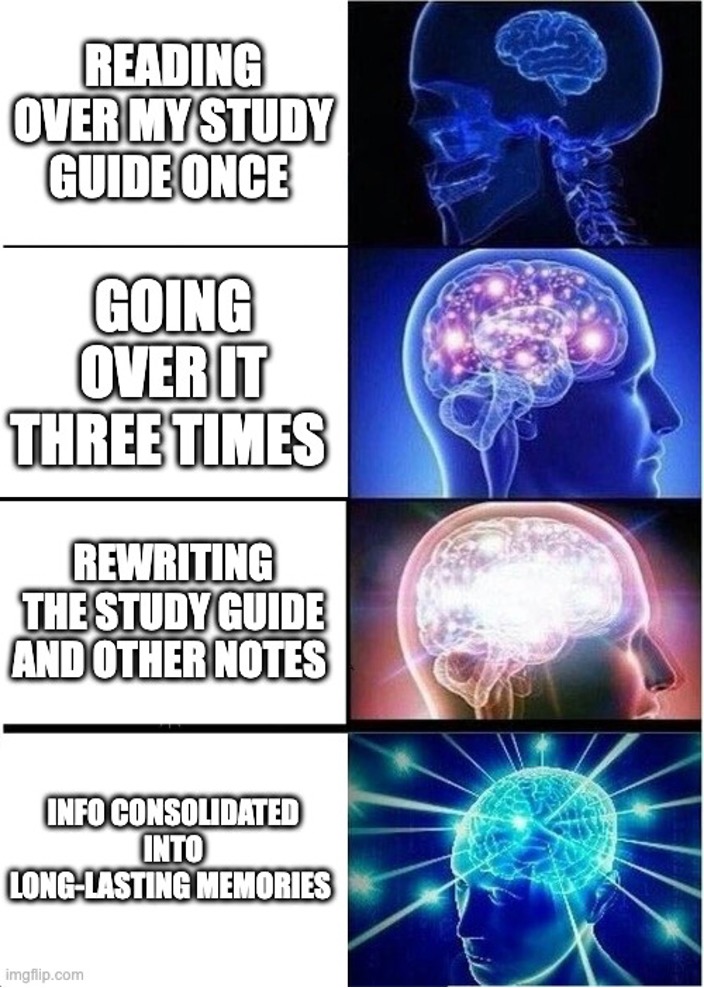By Frannie Heckman
Memories are a huge factor in learning, studying, and just your everyday life as student. Learning the processes of memories and how certain memories become short-term and some become long-term, where they are in your brain, and learning how sleep can affect you, can actually be a benefit for studying and your future GPA. While studying many students just take in as much information as possible in a short amount of time this is not always the best method. Consolidation process of memories is transforming them into a more stable, longer- lasting form. (1) This can also be helpful to students to get the information they need while having it last longer in the process.


 ’s not uncommon for college students to pull all-nighters the night before a big exam. They either forgot about the exam and have no choice but to stay up all night and study or are so nervous that they’d rather study than sleep. Students try to stay up into the late hours of the night, attempting to remember every detail on their study guides, flipping through their flashcards over and over again. Before they realize it, its 8 am, and they decide to call it quits and grab the closest source of caffeine just to have some energy to make it through the exam. Throughout the exam, they find themselves struggling to remember the information they spent all night studying. They’re fatigued and although they try their best to remember, the information just isn’t coming to them. Weeks later students receive their results from the exam, only to find that their grade didn’t match the amount of effort put into studying for it.
’s not uncommon for college students to pull all-nighters the night before a big exam. They either forgot about the exam and have no choice but to stay up all night and study or are so nervous that they’d rather study than sleep. Students try to stay up into the late hours of the night, attempting to remember every detail on their study guides, flipping through their flashcards over and over again. Before they realize it, its 8 am, and they decide to call it quits and grab the closest source of caffeine just to have some energy to make it through the exam. Throughout the exam, they find themselves struggling to remember the information they spent all night studying. They’re fatigued and although they try their best to remember, the information just isn’t coming to them. Weeks later students receive their results from the exam, only to find that their grade didn’t match the amount of effort put into studying for it.